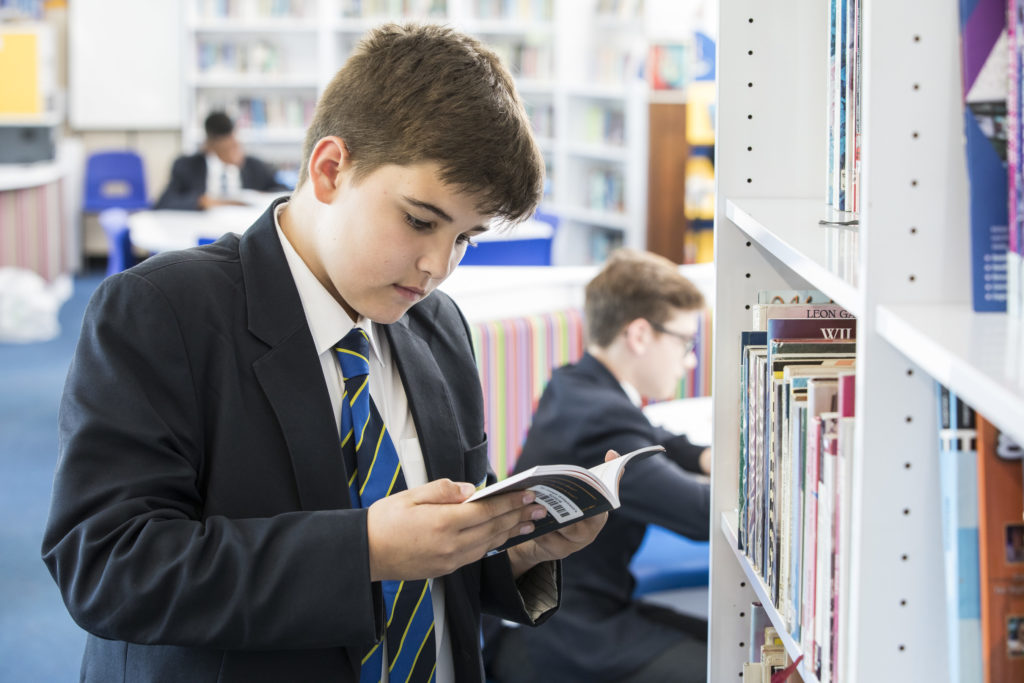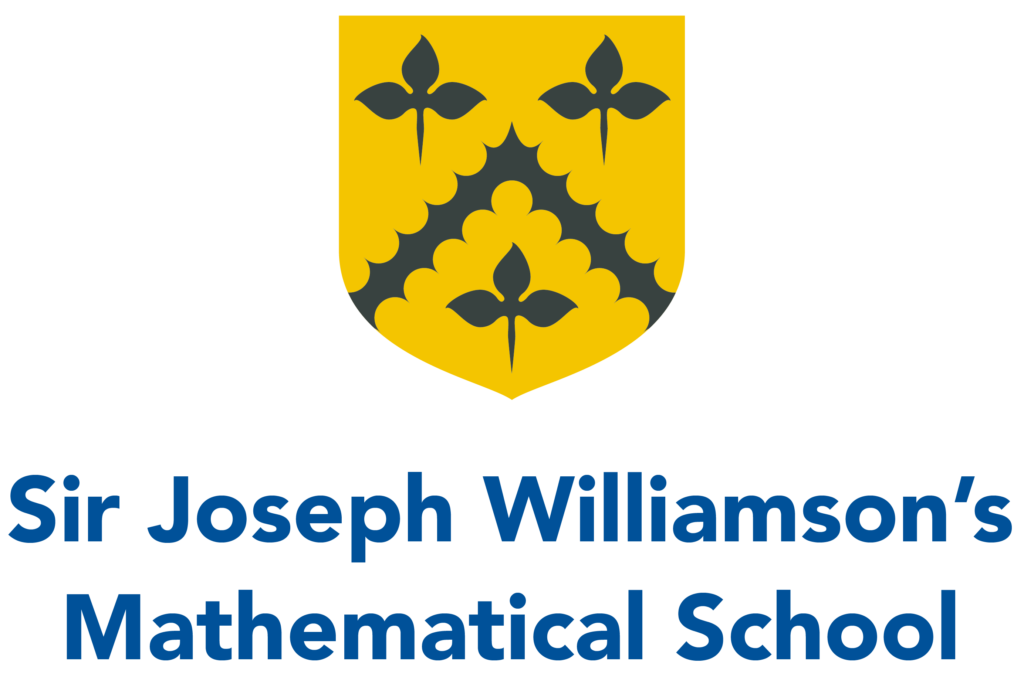Literacy is the result of engaging with and thinking about ideas, issues and problems with written and spoken English. We want to empower students to think rationally, to critically evaluate influences in their world and to appreciate that all communications are constructs designed to achieve the intentions of their authors.
Whilst we have built our curriculum around the National Curriculum guidance to ‘promote high standards of language and literacy by equipping pupils with a strong command of the spoken and written word, and to develop their love of literature through widespread reading for enjoyment’, we treat this as a starting point for an ambitious curriculum with critical literacy at its heart. Due to the academic context of our school, the vast majority of our students start with a high level of literacy and therefore our aim is to elevate their skills to a more independently critical mindset.
We teach a rich and varied curriculum that both prepares students for their GCSE examinations and also goes beyond the focus of examined texts. For example, in addition to the three 19th Century novels we offer in KS3, students also study three novels from both other cultures and the modern genre. We aim to engage all of our students with a variety of Shakespeare plays, beginning with an engaging introduction in Year 7 though to Hamlet at KS5. By engaging with a range of texts, we are enabling our students to see the wide ranging interpretations that can be made and the varied arguments presented in the texts. We want learners that are able to recognise that there is no one way of reading a text.
Choice of content:
- For English Literature, we choose to teach three of the set GCSE exam texts at key stages 3 and 4 to help students to understand each text in its social, historical and cultural context, but also to be able to draw parallels between them. Students at KS3 study Dickens’ A Christmas Carol in Year 7 and Jekyll and Hyde in Year 9, both of which are GCSE texts, and are in addition to Mary Shelley’s Frankenstein that they study at KS4 so no repetition of content occurs, only the repetition of context and key themes and ideas linked to the social setting.
- The poetry provision features a diverse collection that includes poetry from other cultures, War poetry and Romanticism in order to present a broad thematic approach in the students’ knowledge and critical evaluation.
- For English Language, the overall focus is on a secure command of Standard English in reading, writing, speaking and listening, being aware of register and being able to apply Standard English in a number of ways. We explore great speeches, travel writing and advertising at KS3 in order to expose students to a variety of genres and styles in preparation for GCSE.
- In Year 9, students follow a Media course for one lesson a fortnight. The content includes media theory and exploration of a range of modern media genres. The analysis of the use of language in Media overlaps with the analysis of writers’ methods in the GCSE Language examinations.
Beyond the focus on specified curriculum texts, the department provides enrichment opportunities that encourage a love of reading, improved thinking and literacy skills. In Year 7, one lesson per week is in the Library which promotes a love of reading, provides students with access to texts and in which they complete fun activities around reading. In a boys’ school, we feel this is essential as research consistently shows boys’ reading ages lag behind girls and are notoriously less likely to read regularly for pleasure. In Year 8, the department provides the Let’s Think cognitive thinking programme to develop critical thinking skills and problem solving; these lessons develop the critical understanding that there is no right or wrong answer.
The English curriculum has been designed to be accessible to all students. The topics are chosen to reflect both real-life experiences, as well as fictional environments that students can relate to and explore a personal engagement with. If a text offers challenging vocabulary, vocabulary banks are used, or activities that allow students to learn the vocabulary before engaging with the text. Retrieval practice are used across all key stages to ensure students regularly revisit key concepts and terms, for example the tragic genre (and therefore all the concepts and terminology related to it) is first explored through Romeo and Juliet at KS3, followed by Macbeth at KS3 4, and finally Hamlet at KS5. Writing frames and scaffolds are also regularly used to support students with extended responses, and all resources are shared with students via Google Classroom so they are readily available.
By the end of KS3 we expect students to be making an informed response to texts. By the end of KS4, we expect students to have developed a more evaluative and personal response to the texts. By having this foundation of skills, we expect KS5 students to have developed an awareness of themselves as literary critics where their opinions stand alongside other critical interpretations. These expectations clearly show the progression in skills through engaging with literature. Additionally, at the end of KS3 students will be able to form responses that address all of the relevant assessment objectives for GCSE Language and Literature. The end points for KS4 and 5 is most obviously success in the public examinations with an aim of 50% achieving a 7-9 for GCSE and an ALPS 3 for A Level, whilst also producing students who are able to engage with an evaluative and personal response to any text. We want students to go on and study English Literature at a post-graduate level having become excellent critics and writers.




